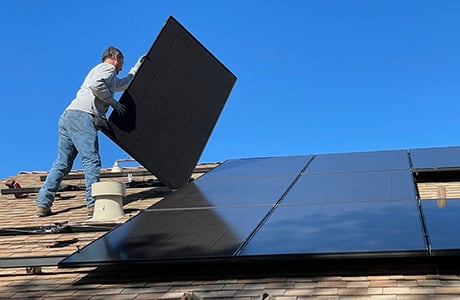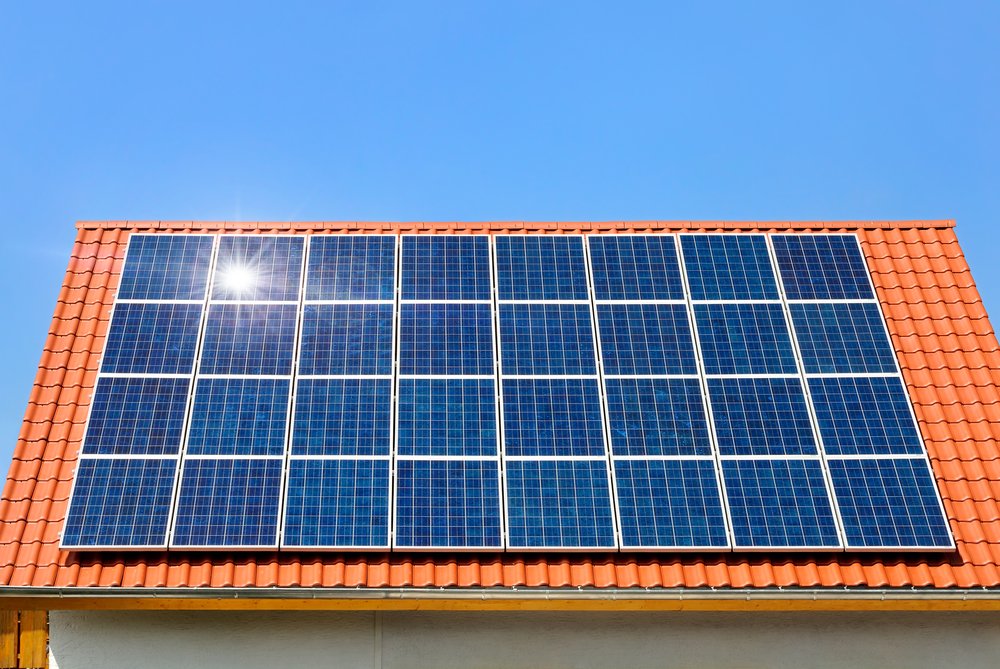Exactly How to Pick the Right Solar Energy Setup for Your Energy Demands
Choosing an ideal solar power installation requires a systematic method that starts with a clear understanding of your power consumption patterns and awaited future requirements. Aspects such as the kind of solar modern technology, installment prices, and readily available incentives play critical duties in making an educated choice.
Assess Your Power Needs
Evaluating your energy requires is an important very first step in the solar power setup procedure. Understanding your existing and future power usage will guide the design of an effective solar system customized to your requirements.
Think about seasonal variants in power intake, as particular months may demand even more power due to heating or air conditioning demands. Additionally, review any scheduled changes in way of living or property, such as the acquisition of electrical automobiles or home developments, which may boost your power needs in the future.
Once you have an extensive understanding of your energy consumption, you can figure out the suitable solar capacity required to satisfy those demands. This assessment not just aids in sizing the solar installment but additionally notifies decisions about power storage space solutions and potential grid link requirements. solar photovoltaic. Eventually, precisely evaluating your energy needs guarantees that your solar power system operates efficiently, providing the benefits of renewable power abreast with your usage patterns

Evaluate Solar Innovation Options
When thinking about a solar power setup, it is essential to assess the various solar technology options available to make sure the system straightens with your energy requirements and spending plan. The key modern technologies consist of monocrystalline, polycrystalline, and thin-film photovoltaic panels, each offering unique benefits and downsides.
Monocrystalline panels are understood for their high performance and performance in minimal room, making them ideal for household setups with much less roof covering location. They often tend to be extra pricey. Polycrystalline panels, while slightly much less effective, are typically much more affordable and can be a good option for bigger installations where area is not a restraint. Thin-film photovoltaic panels are lightweight and flexible, optimal for unique surface areas, but they typically have reduced effectiveness and need more area to generate the very same energy output.
In enhancement to panel kinds, take into consideration solar inverters, which transform the straight present created by the panels into rotating present for home usage. String inverters, microinverters, and power optimizers each have one-of-a-kind advantages that can impact system performance. Evaluating these options will aid you make an educated choice that satisfies your energy needs efficiently.
Take Into Consideration Installment Costs
Comprehending installation costs is vital for any person taking into consideration a solar power system. These costs can differ dramatically based on a number of factors, consisting of system size, kind of panels, and installation complexity. A typical residential solar installation may range from $15,000 to $30,000 prior to motivations, which can be a significant ahead of time investment.
To precisely examine installation prices, it is important to get detailed quotes Going Here from numerous solar carriers. These quotes ought to damage down the costs of equipment, labor, permits, and any kind of extra devices needed for the installation. Pay very close attention to the high quality of materials being offered, as higher-quality panels and inverters can lead to much better effectiveness and durability, possibly balancing out higher first costs.
Furthermore, take into consideration the lasting ramifications of setup expenses. A less expensive installment may conserve money ahead of time however might cause higher upkeep prices or minimized energy manufacturing gradually. It is additionally advisable to evaluate financing alternatives, such as solar loans or leases, which can impact your general financial dedication.
Study Local Rewards
Checking out regional rewards can significantly affect the total cost of a solar power installment. Many regions use a selection of financial motivations aimed at promoting renewable resource use, making solar energy more easily accessible and budget-friendly for property owners and organizations alike.
These motivations might include federal tax credit histories, state discounts, and neighborhood energy business programs that supply money rewards or internet metering alternatives. For instance, the Federal Financial Investment Tax Credit Report (ITC) allows you to deduct a considerable portion of your solar installation expenses from your federal tax obligations. State-specific incentives can additionally enhance these cost savings, frequently in the type of direct cash money rebates or tax credit reports.
Additionally, some city governments might provide real estate tax exceptions for solar setups, making sure that your investment does not enhance your residential or commercial property tax obligation. Investigating these incentives can uncover substantial cost savings, which can affect your choice on the size and kind of planetary system to set up.

Choose a Respectable Installer
Picking a trustworthy installer is critical to making sure the continue reading this success and long life of your solar power system. The installation process dramatically influences the efficiency and effectiveness of your solar panels, making it important to choose a service provider with a tested track document.
Following, validate the installer's credentials, consisting of licenses, accreditations, and insurance. A trusted installer needs to hold certifications from identified organizations, such as the North American Board of Qualified Energy Practitioners (NABCEP), showing a high degree of know-how. Furthermore, make inquiries about the installer's experience with comparable jobs, particularly in your area, as neighborhood climate and laws can influence installation practices.
Request multiple quotes and compare them not just on rate yet also on the high quality of devices and guarantees provided. A credible installer should provide clear details regarding their services and products, helping you make a notified choice. By spending time in choosing a reputable installer, you will certainly enhance the total performance and durability of your solar energy system.
Verdict
Finally, choosing the suitable solar energy setup demands a comprehensive assessment of power requirements, an understanding of offered solar modern technologies, and a cautious consideration of installation prices. Investigating local incentives can boost financial you can try these out benefits, while picking a trusted installer makes certain top quality craftsmanship and dependability. solar photovoltaic. By systematically evaluating these aspects, individuals can achieve an optimum solar option that meets both existing and future power needs, inevitably contributing to lasting energy methods and expense savings in time